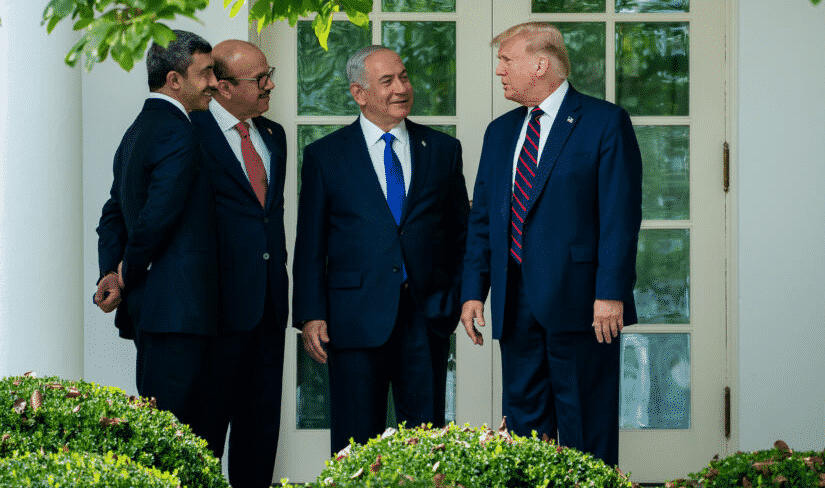One of President Donald Trump’s most enduring legacies will be achieving new historic peace agreements normalizing relations between Israel and her neighbors, including Bahrain, United Arab Emirates, Sudan and Morocco.
Presidents for decades had attempted to bring Middle East peace since Israel and Egypt signed the peace treaty in 1979 brokered by former President Jimmy Carter, but with almost no success.
Dubbed the Abraham Accords, it was President Trump who, with his art of the deal and the help of his foreign policy team led by his son-in-law and senior advisor Jared Kushner, made the breakthrough.
It all came after President Trump recognized Jerusalem as the capital of Israel in Dec. 2017, and completed moving the U.S. embassy there in May 2018.
All the smart people in the Washington, D.C. establishment warned that the move would lead to more conflict in the Middle East.
Instead, the opposite happened. Peace broke out.
In 1995, Congress passed the Jerusalem Embassy Act which declared Jerusalem as the capital of Israel and said it should not be divided, requiring the U.S. embassy to be moved to Jerusalem by 1999. President Bill Clinton never signed the law but did not veto it either, allowing it to take effect.
Instead, Presidents Clinton, George W. Bush, Barack Obama and Donald Trump all signed waivers to postpone recognition of Jerusalem as the capital, as U.S. policy was that the status of Jerusalem would be settled via negotiations.
Jerusalem has always been the capital of Israel. Nobody should expect Israel to turn back the clock and hand over territory that has been rightfully held since 1967, and officially established as the unified capital by the Israeli Knesset since 1980.
Here, President Trump settled a point of conflict between Israel and her neighbors, and that helped create a path forward in the region. From the U.S. perspective, there is nothing left to negotiate—and it will be very difficult for President-elect Joe Biden to reverse course.
That is not to say that there is still not a lot of hard work to do. The Arab states will not immediately agree on the topic of Jerusalem.
United Arab Emirates will establish its embassy in Tel Aviv. So will Morocco and Bahrain. Sudan only just formally signed the accord with the U.S. last week normalizing relations with Israel, and so the embassy will surely follow this year.
In the agreement with Israel and the United Arab Emirates it stated, “The parties will continue their efforts in this regard to achieve a just, comprehensive and enduring resolution to the Israeli-Palestinian conflict. As set forth in the Vision for Peace, all Muslims who come in peace may visit and pray at the Al Aqsa Mosque, and Jerusalem’s other holy sites should remain open for peaceful worshippers of all faiths.”
This is a small step, and in time, God willing, there will be more.
That is, should the Biden administration not mess it all up by pivoting back to Iran and trying to resurrect the now-defunct Iran nuclear deal. That would potentially make it more difficult for the remaining Arab states to come along and join with their neighbors in recognizing Israel.
For now, though, the key is that at least they are talking. And it might never have happened had President Trump not been elected in 2016.
Robert Romano is the Vice President of Public Policy at Americans for Limited Government.







